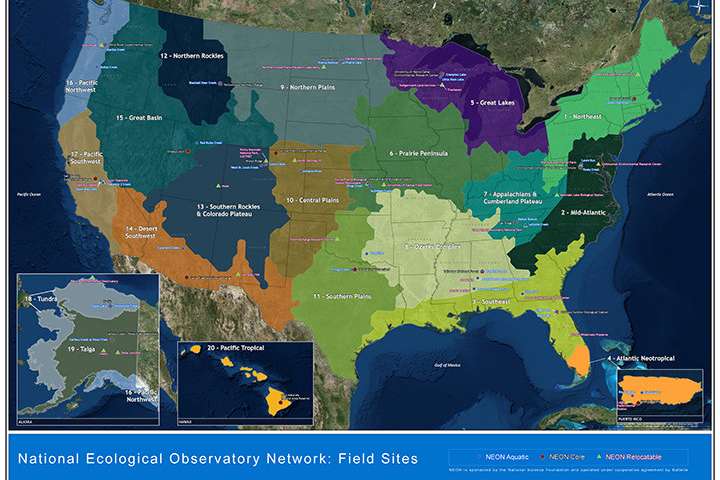Study finds Amazonian rainforests gave birth to the world’s most diverse tropical region
A new study is suggesting many of the plants and animals that call Latin America home may actually have their roots in the Amazon.
The...
Making carbon nanotubes as usable as common plastics
Northwestern University's Jiaxing Huang is ready to reignite carbon nanotube research. And he's doing so with a common chemical that was once used in...
Forest loss in one part of US can harm trees on the opposite coast
Large swaths of U.S. forests are vulnerable to drought, forest fires and disease. Many local impacts of forest loss are well known: drier soils,...
Where hominid brains are concerned, size doesn’t matter
The recently-discovered species Homo naledi may have had a pint-sized brain, but that brain packed a big punch. New research by Ralph Holloway and...
Producing beneficial propylene while consuming a major greenhouse gas
What if a major heat-trapping greenhouse gas could be consumed to produce a valuable chemical that is in short supply? Chemists at the U.S....
Lack of ‘happiness’ hormone makes rice plants less attractive to insects
Inhibiting the production of the 'happiness' hormone – serotonin – in rice plants, increases their resistance to two of the world's most destructive and...
Orbital variations can trigger ‘snowball’ states in habitable zones around sunlike stars
Aspects of an otherwise Earthlike planet's tilt and orbital dynamics can severely affect its potential habitability—even triggering abrupt "snowball states" where oceans freeze and...
Chemists find new way to create lithium metal electrodes for batteries
Researchers at Yale and Donghua University in China have developed a new process for creating lithium metal that may boost the energy and capacity...
Astronomers find fastest-growing black hole known in space
Astronomers at ANU have found the fastest-growing black hole known in the Universe, describing it as a monster that devours a mass equivalent to...
New study finds variations in global warming trend are caused by oceans
New research has shown that natural variations in global mean temperature are always forced by changes in heat release and heat uptake by the...
Scientists’ discovery in Yellowstone ‘extremely relevant’ to origin of life
Montana State University scientists have found a new lineage of microbes living in Yellowstone National Park's thermal features that sheds light on the origin...















